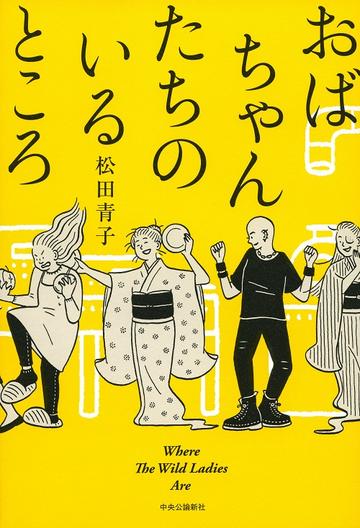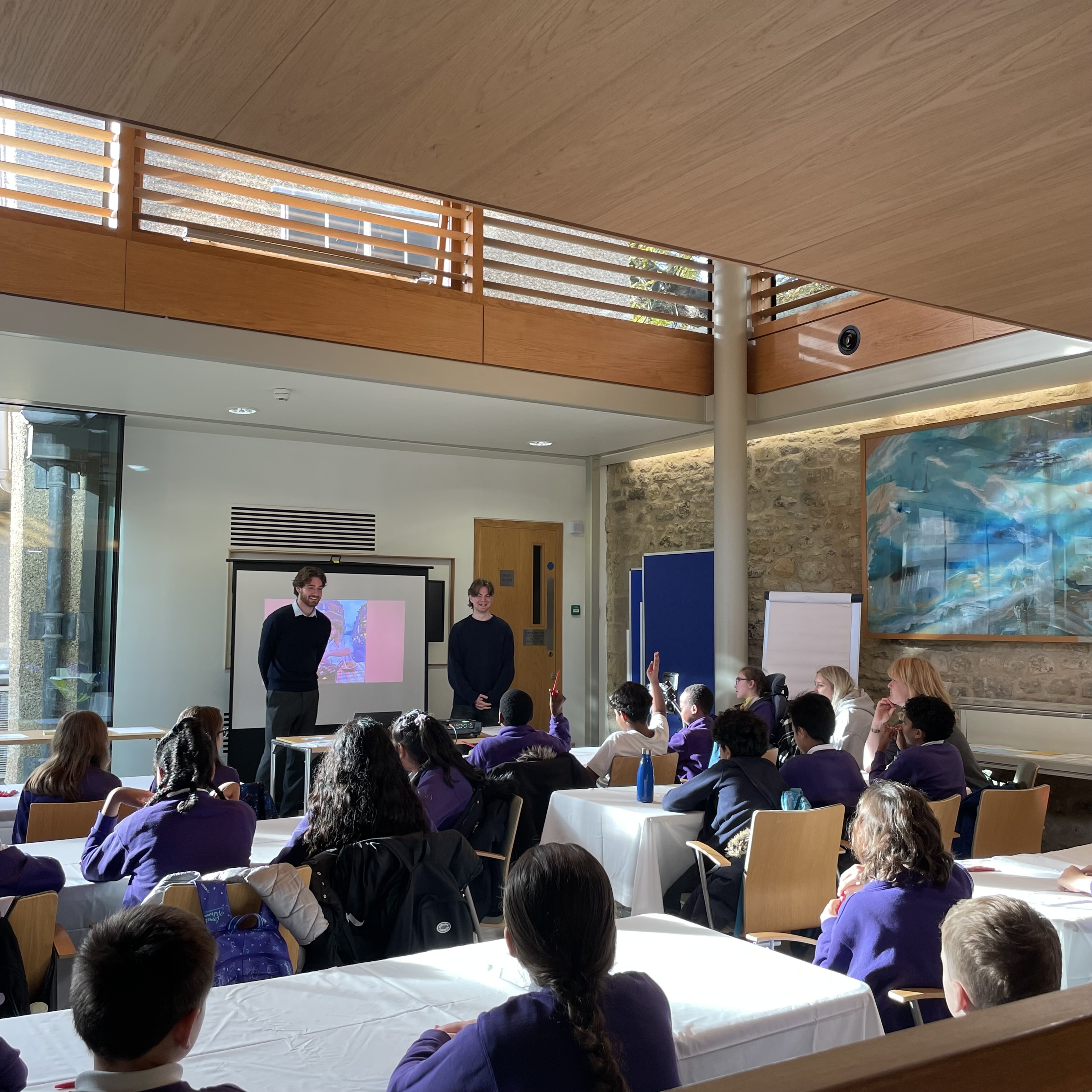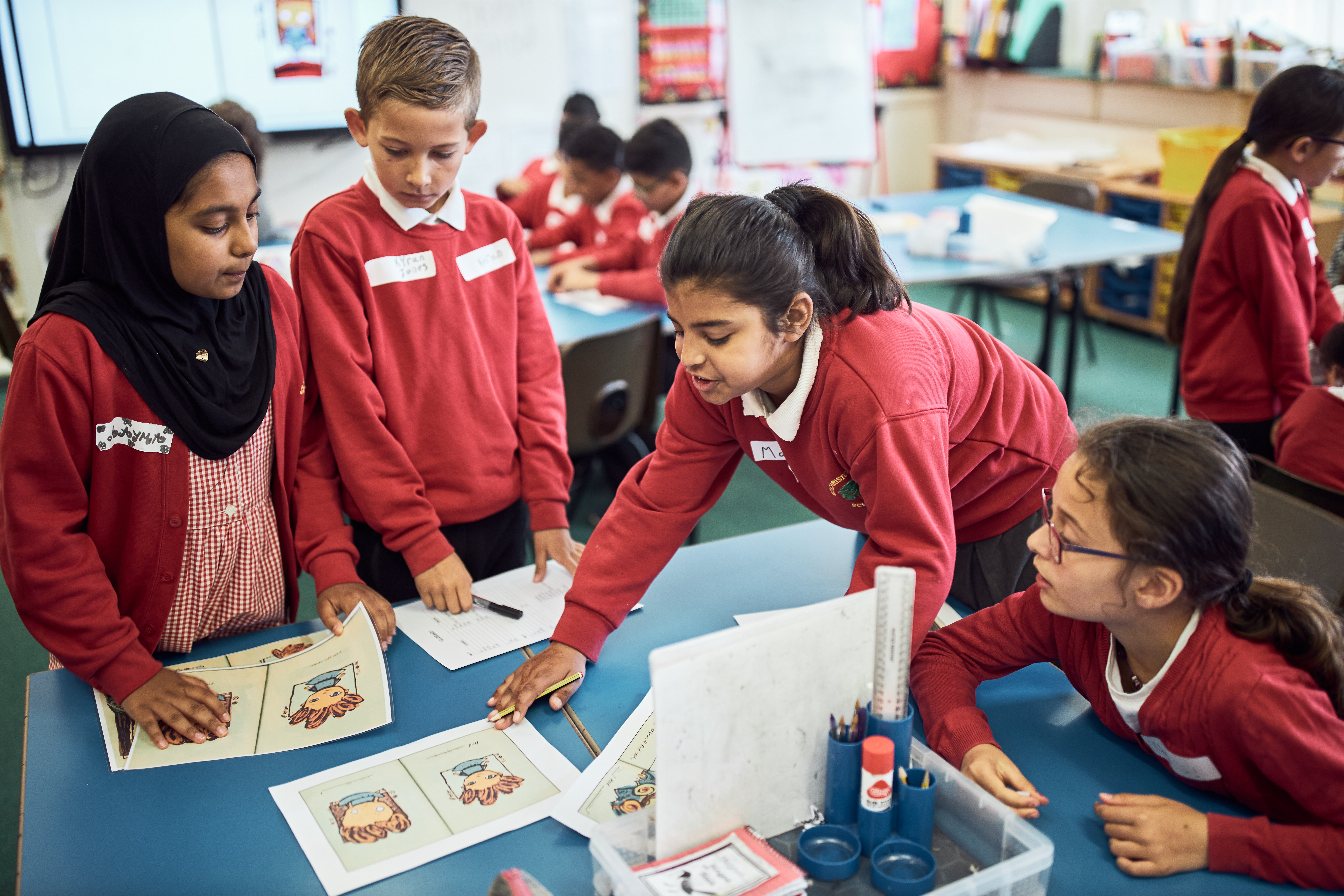Polly Barton is a TORCH Humanities Cultural Programme Visiting Fellow, as well as Translator-in-Residence at The Queen’s College. This article, by Beau Waycott, was originally published on TORCH’s website.
On the 23rd November 2022, Humanities Cultural Programme Visiting Fellow Polly Barton worked with third-year Japanese students in their translation classes taught by Dr Juliana Buriticá Alzate, Departmental Lecturer in Modern Japanese Literature (Pembroke College).
The day started at 9 a.m., with Polly joining the third-year unseen translation class. Polly and Juliana have both translated Aoko Matsuda’s Obachan-tachi no iru tokoro (Where the Wild Ladies Are, 2020) into English and Spanish respectively. The unseen translation class worked together to translate a Japanese book review of the work. Translating grammatical elements was a particular focus; long Japanese sentences do not necessarily have a subject, but one is always needed in English translation, and Polly gave some fascinating insight into these kind of Japanese language-specific translation issues. She also spoke through the kind of relationship translators may have with the author they are working with- all whilst wearing a badge gifted from Aoko Matsuda and made by the feminist embroidery group Yamanba!
In the afternoon, Polly then joined the smaller text translation tutorials. Over Michaelmas term 2022, the text translation classes for third-year Japanese students focused on Mieko Kawakami’s Haru no kowai mono, a collection of six short stories published in 2022 and interlinked by occasional references to the coronavirus pandemic. Students asked Polly about parts of the short story Blue Ink they had found particularly difficult to render in smooth English, such as sections containing ambiguous narrative voices or mimetic and onomatopoeic vocabulary. Juliana then led a whole-group discussion based around Beverly Curran’s article Recognition, risk, and relationships: feminism and translation as modes of embodied engagement (published in The Routledge Handbook of Translation, Feminism and Gender, 2020), with Polly giving insight into methods of foreignizing and localising texts.
Overall, Polly gave the third-year students a mixture of fascinating personal insights into the life of a literary translator, encouragement to take time to enjoy the process of translation, and specific advice for Japanese-language translation. The students would like to thank Polly for her wonderful help, and look forward to her roundtable at the Nissan Institute, St. Anthony’s college in Hilary term 2023, where she and Juliana will discuss their experiences of translating Aoko Matsuda, the modern-day legacy of ghost stories, and translation as an act of feminist solidarity.


